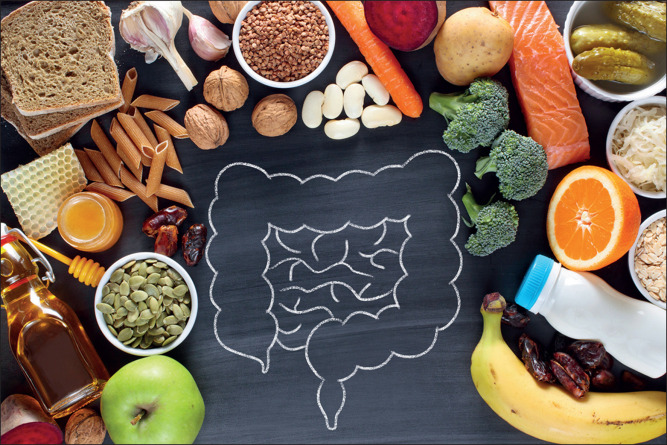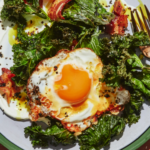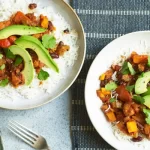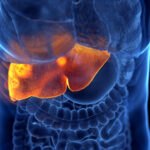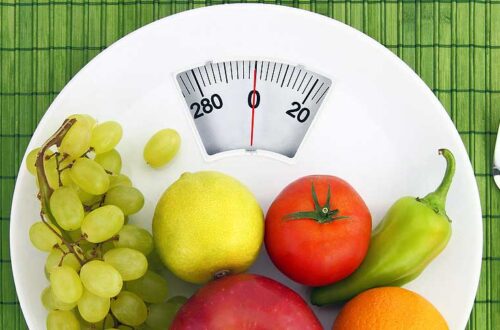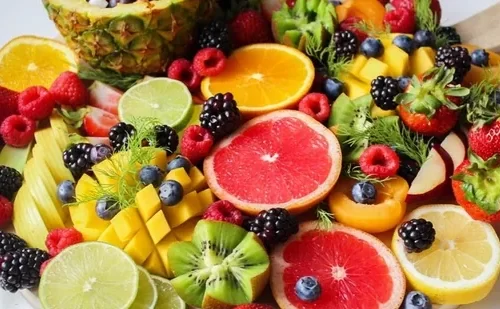Crohn’s Disease Diet to Follow
Crohn’s disease is a type of inflammatory bowel disease (IBD). Regarding Crohn’s Disease Diet, choosing what to eat and drink can create problems. Not only does this condition cause inflammation and discomfort in the digestive tract, it can also lead to malnutrition.
To further complicate matters, diet can exacerbate symptoms. There is no known panacea for Crohn’s disease, but eating or avoiding certain foods can prevent flare-ups.
Food to Eat
Lets start with foods to eat
Cereals
Cereal is a popular staple food. Whole grains are often touted as the best dietary benefit because they are rich in fiber and nutrients. Studies show that a high-fiber diet may reduce his risk of IBD.
However,once you are diagnosed with IBD and the disease becomes active, the fiber factor may become an issue.
Depending on your condition, your doctor may recommend a low-fiber diet. This means you should limit the amount of whole grains you eat.
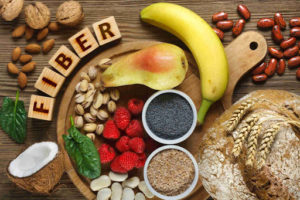
According to the Crohn’s Disease and Colitis Foundation of America (CCFA), patients with Crohn’s disease may benefit from a low-fiber, low-residue diet plan to help manage small bowel obstruction or acute symptoms.
This diet (Crohn’s Disease Diet) reduces fiber and “waste” and stimulates the intestines.
However, on going research has cast doubt on the usefulness of a low-fiber diet in treating Crohn’s disease. A small 2015 study of a plant-based diet containing eggs, dairy, fish and fiber, showed a high remission rate over 2 years.
Overall, the researchers also reviewed other studies and came to conclude that a plant-based diet may help reduce gut inflammation and improve overall health. Fiber intake was not associated with adverse symptoms or outcomes.
Grains eaten:
1. Potato
2. Rice and rice noodles
3. Gluten free bread
4. Cornmeal and polenta
5. Oatmeal
Fruits and vegetables
Fruits and vegetables have many health benefits, but they can cause problems for the same reasons as whole grains.
High content of insoluble dietary fiber.
Instead of giving up fruits and vegetables altogether, you can reap some of their benefits by processing them differently. However, this process can also remove some of the important nutrients, especially water-soluble vitamins and enzymes.
It is recommended that you consult your doctor or nutritionist on how to prevent deficiency symptoms.
Fruits and vegetables to try:
1. Apple sauce
2. Stewed or stewed vegetables
3. Peeled cucumber
4. Paprika
5. Banana
6. Cantaloupe
7. Squeeze
8. Pumpkin
Protein and Meat
When it comes to Crohn’s disease diet, protein selection should be based on fat content.
Protein to eat:
1. Egg
2. Fish
3. Shellfish
4. Pork tenderloin
5. Peanut butter
6. White chicken
7. Tofu and other soy products
Dairy products
Some people with Crohn’s disease can drink milk here and there without problems, but they may not tolerate dairy products very well. Instead, try eating dairy alternatives that are widely available at grocery stores and supermarkets.
Dairy or milk alternatives to try:
Milk, yogurt and cheese made from plants such as soybeans, coconuts, almonds, flax and hemp
Low-fat fermented dairy products such as yogurt and kefir
(Crohn’s Disease Diet ) Avoid These Food
1. Cereals
2. Eating a lot of fiber can be a problem if you have IBD.
The insoluble fiber found in fruit and vegetable peels, seeds, dark leafy greens, and whole grains passes through the digestive tract in tact.
This can lead to increased diarrhea and abdominal pain. However, other substances in grains, such as gluten and fermentable carbohydrates (FODMAPs), can also contribute.
Particles to Avoid or Limit:
1. Whole-grain bread
2. Whole wheat pasta
3. Rye and rye products
4. Barley
Fruits and Vegetables
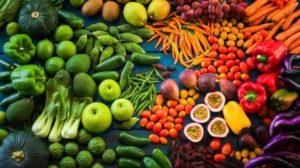
Fruits and vegetables have many benefits, so it’s a shame to think that if you have Crohn’s disease, you should avoid them.
The truth is, even raw foods contain a lot of insoluble fiber. It causes stomach and digestive pain.
You don’t have to eliminate all fruits and vegetables from your diet.
However, some fruits and vegetables can be very taxing on the digestive tract in Crohn’s disease due to their fiber and FODMAP content.
Fruits and vegetables that may be restricted:
1. Apple with skin
2. Broccoli
3. Cabbage
4. Cauliflower
5. Artichoke
6. Cherry
7. Peach
8. Plum
Protein and meat
Fatty meats should be avoided as they can cause inflammation. Proteins to avoid or limit:
1. Red meat
2. Sausage
3. Black meat chicken
Dairy products
Lactose intolerance tends to coincide with IBD.
Lactose, a form of lactose, can increase the risk of bloating, stomach pain, and diarrhea. High-fat foods can also be difficult to digest.
Dairy products to avoid for Crohn’s Disease Diet:
1. Butter
2. Cream
3. Whole dairy
4. Margarine
When choosing dairy, choose low-fat options, limit intake, and use enzyme products such as lactaid and lactose-free products to control flare-ups.
Drink
Given the nature of Crohn’s disease, drinking more fluids is generally a good idea. The best drink when comes to Crohn’s Disease Diet is usually plain water. Water is also the best hydration. Dehydration is often a risk of chronic diarrhea.
Drinks to avoid or limit:
1. Coffee
2. Black tea
3. Lemonade
4. Wine, liquor, beer
Try these instead:
1. Plain water
2. Sparkling water (if allowed)
3. Decaffeinated herbal tea
Caffeinated beverages such as coffee, tea, and soda make diarrhea worse. Alcohol can have the same effect. Soda and carbonated water are also not necessarily good choices, as they can increase gas in many people.
When you can’t live without your daily dose of caffeine or the occasional glass of wine, remember that moderation is key. To minimize potential side effects, drink water with these beverages.
Spices
Spicy foods can irritate and make symptoms worse. As a rule of thumb, you should avoid anything too spicy. Turmeric (or curcumin), on the other hand, has been associated with minimal flare-ups of Crohn’s disease in preliminary studies.
Spices to avoid or limit:
1. Green pepper
2. Black pepper
3. Cayenne pepper
4. Chili powder
- Jalapeno pepper
Garlic
7. White, yellow or purple onions
8. Paprika
9. Wasabi
Try these instead:
1. Turmeric
2. Ginger
3. Chives or leeks
4. Cumin
5. Lemon peel
6. Fresh herbs
7. Mustard
Vitamins and nutritional supplements
Food issues may require consideration of vitamins and supplements. Multivitamin supplements help prevent malnutrition caused by the inability of the small intestine to properly absorb nutrients from the diet.
If your diet is severely restricted due to flare-ups, multivitamins with minerals can also help make up for missing nutrients. Calcium is also an important supplement, especially if you don’t eat a lot of dairy.
Depending on the severity of the illness and inflammation, folic acid, vitamin B12, vitamin D, and fat-soluble vitamins (vitamins A, D, E, and K) are used for medications taken and for surgical excisions. Malnutrition is the most common.
Supplements can be helpful, but should be discussed with a doctor or nutritionist first to avoid overdosing and possible drug interactions.
Source: Healthline
Health Benefits of Blueberries

A graduate of Computer Science and Information Management Technology. Diploma – Caregiving, Certificates – Dementia and Diabetes Awareness and Management. A researcher, blogger, songwriter, singer and acoustic guitarist. Born in an environment where natural talents such as healing are imparted at our natural birth. This natural talents of healing is the result of our genetic inheritance and the training from family environment.

